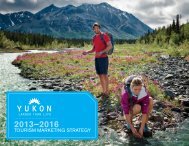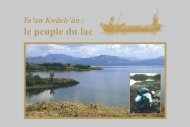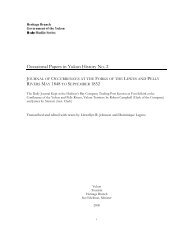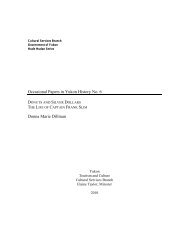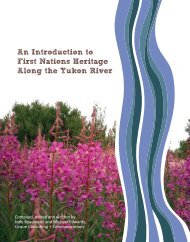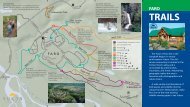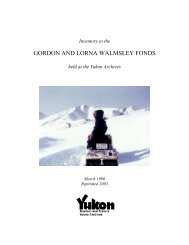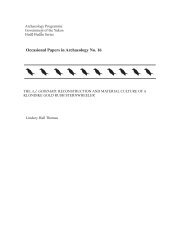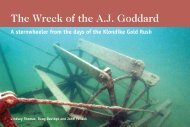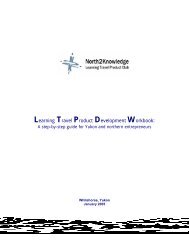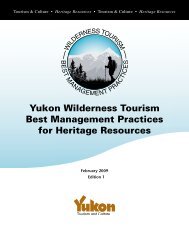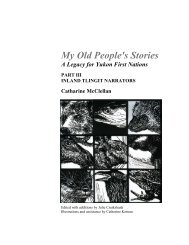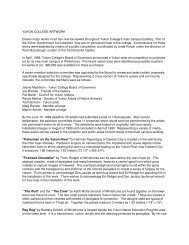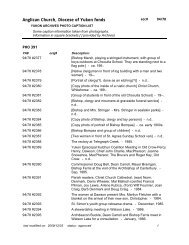Sustainable Tourism: The Tour Operators' Contribution
Sustainable Tourism: The Tour Operators' Contribution
Sustainable Tourism: The Tour Operators' Contribution
Create successful ePaper yourself
Turn your PDF publications into a flip-book with our unique Google optimized e-Paper software.
Assessment: What it is and how to do it, UNEP IE, Paris, 1996). <strong>The</strong> methodology was then tailored to the<br />
demands of the tourism sector by an external consultant, the UK Centre for Economic Development (UK<br />
CEED).<br />
<strong>The</strong> LCAs were performed by UK CEED, which<br />
obtained the necessary information through research<br />
channels, the World Bank, academic reference<br />
material, regional organisations, on-island research<br />
and local contacts. <strong>The</strong> assessments were made<br />
with the support of the local tourist boards.<br />
<strong>The</strong> results of the assessments, which included<br />
an evaluation and recommendations for the tour<br />
operator, the host government and tourists, were<br />
published and presented to hoteliers and more than<br />
34 St. Lucian organisations (see Box 1).<br />
Benefits<br />
<strong>The</strong> benefits of the LCAs have included environmental<br />
improvements in St. Lucia and better quality<br />
holidays for visitors. For example, as a result of the<br />
recommendations of the LCA, the St. Lucian government<br />
developed national policies on waste management using<br />
funds from a tourism tax. New types of tourism such as nature and heritage tourism have also been<br />
developed.<br />
<strong>The</strong> LCA included a special report on the impacts of all-inclusive hotels on the economy, environment and<br />
society (see Box 1). This report enabled BAH to join the debate on the benefits of all-inclusive holidays. In<br />
the longer term, tourism in St. Lucia may benefit from better tourism planning and a greater awareness of<br />
the impacts of tourism. A second LCA is planned for 2003 to provide a basis for comparison.<br />
Comments<br />
One of the challenges in implementing the LCA was convincing stakeholders that it really was needed, even<br />
though it was not required by legislation. <strong>The</strong> study would not have succeeded without good leadership<br />
and a long-term view. Press criticism of tourism in the island reinforced the need for the study, which had<br />
the full support of the St. Lucia <strong>Tour</strong>ist Board.<br />
However, LCAs are not easy to conduct. <strong>The</strong> technique relies on quantitative data that enable comparisons<br />
to be made of the environmental performance of different products, such as a comparison of energy and<br />
water consumption for all-inclusive and conventional holiday products. <strong>The</strong>se data are often hard to find or<br />
unavailable for holiday products, and so new research may be needed. For example, a detailed transport<br />
survey was required to determine whether transport demands are higher for all-inclusive or conventional<br />
holidays. Similarly, a study was required to assess the demand for different types of excursions for the two<br />
types of holiday.<br />
<strong>Sustainable</strong> <strong><strong>Tour</strong>ism</strong>: <strong>The</strong> <strong>Tour</strong> Operators’ <strong>Contribution</strong><br />
oN the beach iN st. lucia<br />
4. Product Management and Development



